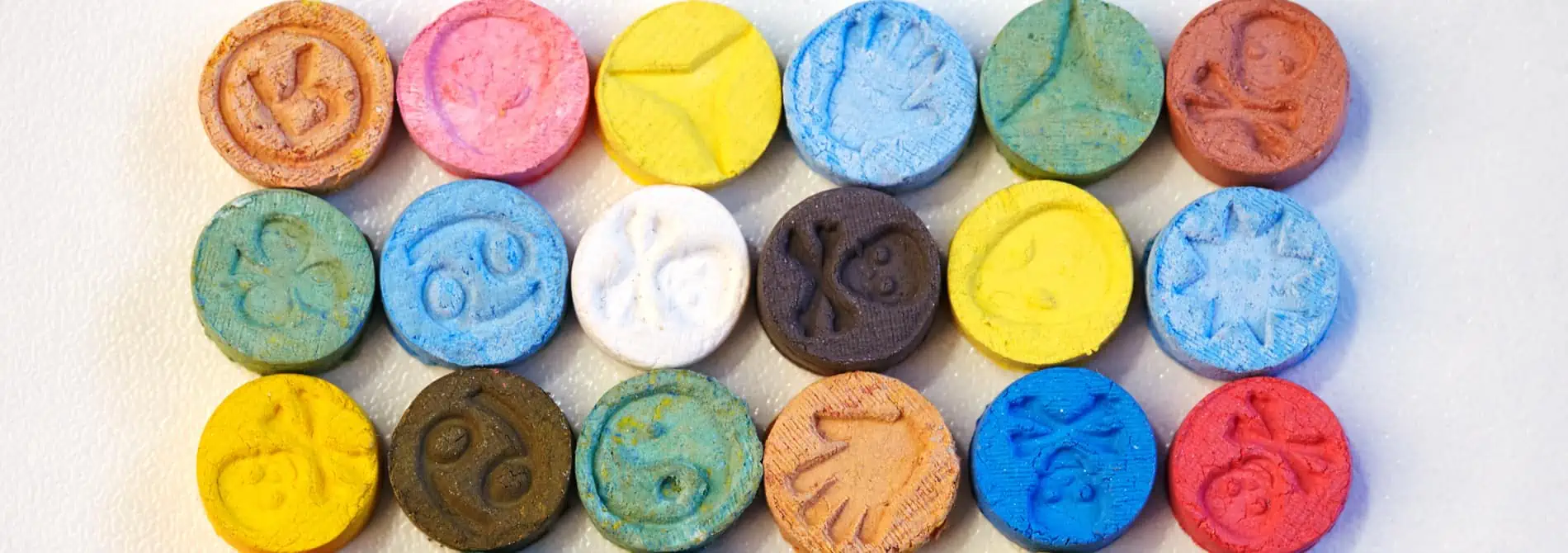MDMA abuse is an emerging issue for executives, celebrities, and other high-profile professionals. Many of the individuals who are affected face significant social, mental, and physical consequences as a result of their substance use. Let’s answer the question of “What is ‘Molly’?”, look at how to identify if you have an issue with MDMA use, and identify a treatment program tailored specifically to your needs.
MDMA (also known as “Molly” and ecstasy) abuse among high-profile professionals may be more common than you think. If you are the executive of a well-known company, this can have serious implications for your job performance and reputation at work. Headwaters provides luxury rehab facilities in an intimate setting with evidence-based therapies for MDMA use, dual diagnosis treatment for individuals whose mental health has contributed to past drug relapses, and customized treatment plans for executives and their families who require a private setting.
If you or a loved one need help, call our admissions team today at 561-270-1753.MDMA is a chemical that can be found in various drugs. It’s also known as Ecstasy, Molly, or Mandy, and may also be called “Adam” or “X” (and sometimes even E).
What Is MDMA?
MDMA is a psychoactive drug also known as “Molly” or ecstasy. It’s an empathogen or entactogen—a psychoactive drug that produces feelings of empathy and emotional closeness to others. MDMA acts as both a stimulant and a psychedelic. The effects are similar to those produced by amphetamines (speed). Still, MDMA is slower acting, with more subtle changes in mood and perception than other stimulants such as cocaine or methamphetamine.
What Are the Effects of MDMA Use?
The effects of MDMA can vary widely from person to person, and the experience will be different for everyone. If you have been working under the influence of an MDMA, you may believe it’s not apparent to your professional contacts. The truth is, people you know may have already detected your drug use on occasion.
Although mild, the hallucinogenic properties of MDMA can be noticeable.
MDMA is a hallucinogen, meaning it causes hallucinations. While experiencing hallucinations, you may feel anxious or paranoid, especially if you mix MDMA with other drugs. You may react unexpectedly to your environment or behave in ways that appear strange to others.
MDMA use can intensify mental health issues.
It’s possible to feel depressed following MDMA use. However, for people with a history of depression or anxiety, these conditions can become more severe following drug use.
MDMA use can lead to physical and cognitive issues.
Fatigue and memory loss are common symptoms associated with using this drug regularly over long periods.
MDMA use can lead to more severe issues.
It’s essential to remember that “Molly” carries all of the same risks as any other form of amphetamine-based drugs, including death from heat stroke and heart failure due to increased body temperature. In moderate doses, ecstasy acts as a stimulant; in high doses, it acts as a hallucinogen; and in extremely high doses, it causes convulsions and death by cardiac arrest.
MDMA can damage neurons containing serotonin.
MDMA affects the brain’s serotonin system and can damage neurons containing serotonin by depleting them of their supply of this neurotransmitter.
How Long Do the Effects of MDMA Last?
The onset of MDMA effects is usually within 45 minutes. During that time, some people may take a second dose before the altered sensations begin. A dose can last anywhere from 3-6 hours. You may remember the first time you took MDMA left you feeling too warm or too cold, nauseous, dizzy, and experiencing muscle cramps. If you mixed it with other drugs during your first use, you might have felt like you were having a heart attack.
Your Regular MDMA Use May Have Increased over Time.
If you have been using more “Molly” lately to get the same high you’re accustomed to, your drug tolerance has increased. When you’re not taking it, and the euphoria has worn off, you may feel seriously depressed. This effect stems from consistently having higher amounts of serotonin when using “Molly.”
Withdrawal Symptoms of MDMA
Withdrawal can appear different for the same person if they attempt to quit using at other times. Some factors shaping the symptoms you experience include the amount you’ve used, how long you’ve used it if you have any mental health issues or medical conditions, and the use of other drugs. Some of the most common withdrawal symptoms include the following:
● Aggression
● Anxiety
● Decreased libido
● Depression
● Focus or concentration issues
● Fatigue
● Impulsivity
● Increased irritability
● Memory issues
● Thirst
● Poor appetite
● Sleep difficulty
Help for MDMA Use Is Available at Headwaters.
We understand that executives, business leaders, and high-profile professionals who have struggled with MDMA abuse often find it difficult to admit they need help. Also, we know that it is equally as hard to maintain a high level of productivity while in recovery at an inpatient addiction treatment facility. In addition, our program offers an evidence-based approach to MDMA abuse treatment and dual diagnosis that can be completed in as little as a month on a full-time basis in a confidential setting.
Tour Headwaters
 Hanley Foundation’s Headwaters is a non-profit addiction treatment program for executives, public figures, other affluent individuals, and their loved ones. Headwaters offers leading-edge, personalized clinical care for mental health and substance use disorders, and our professional and compassionate staff can help you achieve holistic wellness. To start your healing journey, call 561-270-1753 today.
Hanley Foundation’s Headwaters is a non-profit addiction treatment program for executives, public figures, other affluent individuals, and their loved ones. Headwaters offers leading-edge, personalized clinical care for mental health and substance use disorders, and our professional and compassionate staff can help you achieve holistic wellness. To start your healing journey, call 561-270-1753 today.




